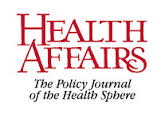The Path to PA’s Medicaid Waiver
The Corbett administration’s Healthy Pennsylvania proposal seeks to go where only two states have gone so far with their Affordable Care Act-enabled Medicaid expansion: the unconventional route.
 While many of the states that have chosen to expand their Medicaid programs under the terms of the Affordable Care Act did so by embracing those terms, others are viewing Medicaid expansion as an opportunity to pursue wholesale changes in how they serve their low-income residents.
While many of the states that have chosen to expand their Medicaid programs under the terms of the Affordable Care Act did so by embracing those terms, others are viewing Medicaid expansion as an opportunity to pursue wholesale changes in how they serve their low-income residents.
Arkansas and Iowa have already received federal waivers – exemptions from selected aspects of existing Medicaid law– to expand their Medicaid programs. Under these waivers, the states operate demonstration programs to test the effectiveness of their variations on ordinary Medicaid practices.
Pennsylvania seeks to follow in their path, and Virginia, New Hampshire, Indiana, and possibly a few other states are expected to do the same in 2014.
Learn more about the path to obtaining such a waiver and the challenges Pennsylvania may face along the way in this Stateline report.



